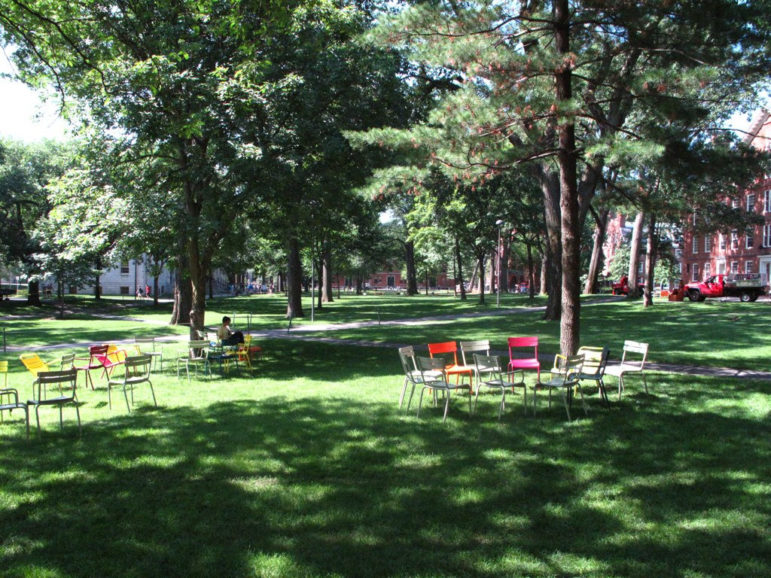
October 25, 2016; The Atlantic
NPQ’s focus between now and Thanksgiving will be on the nonprofit workforce, and part of that discussion will concern compensation. In some fields and institutions, there are pockets of workers making at or below a subsistence wage, and in some cases that fact stands in cruel opposition to the principles and values the field or institution purports to uphold.
Last week, the Boston City Council unanimously voted to back the 700-plus dining hall workers who have been on strike at Harvard University. The resolution was introduced by councilor Michelle Wu, who is a Harvard alumna. Wu spoke about the workers’ importance to the student experience:
When I arrived at Harvard as a college freshman, it was the first time I was away from my family for any extended period of time. The dining hall workers truly became your family away from home.
Councilor Tito Jackson noted the irony in Harvard’s recent receipt of millions of dollars for the “Race, Class, and Cumulative Adversity” project, which will send students into communities in Boston to identify the factors shaping racial and economic inequality.
“Shame on you, Harvard,” said Jackson, referring to what he saw as the situation’s moral disconnect. Ayanna Pressley, another Boston city councilor, said, “We implore you, Harvard, to stop studying poverty and to take your rightful leadership place in doing something to prevent it.”
Sign up for our free newsletters
Subscribe to NPQ's newsletters to have our top stories delivered directly to your inbox.
By signing up, you agree to our privacy policy and terms of use, and to receive messages from NPQ and our partners.
Harvard, of course, has the largest endowment of any university in the world at $35.7 billion. The workers have been asking for a raise to $35,000 in annual compensation and no raise in out-of-pocket health expenses. (One of Harvard’s endowment managers made $11 million in 2013.) But when the strikers and their supporters point this contrast out, experts emerge to explain that because the endowment’s dollars are mostly restricted, so it does not matter in the least. This amounts to a technical sidestep to having to discuss the institution’s responsibility to its communities.
But what do the dining hall workers’ salaries actually mean in lived terms? Not to put too fine a point on all this, but on Monday, the New York Times printed an opinion piece by Rosa Ines Rivera, who has worked at Harvard for 17 years. Rivera wrote that she’d recently opted not to get a spot on her lung checked after a doctor told her one of her children may need surgery.
Harvard is the richest university in the nation, with a $35 billion endowment. But I can’t live on what Harvard pays me. I take home between $430 and $480 a week, and this August, I fell behind on my $1,150 rent and lost my apartment. Now my two kids and I are staying with my mother in public housing, with all four of us sharing a single bedroom. I grew up in the projects and on welfare. I want my 8-year-old daughter and 2-year-old son to climb out of the cycle of poverty. But for most of my time at Harvard it’s been hard.
So much for the factors engendering poverty. This morning, union members will vote on whether or not to ratify a tentative agreement reached after months of heated contract discussion. At time of publication, there was no indication of what the agreement contains.
Two final points: It’s worth saying that Harvard also underpaid its PILOT to the City of Boston this year, and as of the morning of October 26th, the janitors at Tufts are promising similar action if their contracts are not agreed upon.—Ruth McCambridge











